Boron is a trace mineral, common supplement and nutrient that is, sadly, neglected by many of us. Found naturally in several plants, it offers several benefits, not just to plants but also to all of us.
Boron plays an important role in plant growth. It is present in the soil in the form of boric acid or borate and is a mobile nutrient, meaning it is moving in the soil.
Food and drinking water naturally contain boron. This element is typically more common in the oceans, sedimentary rocks, shale, and coal. Certain types of soil, as a result, are more likely to naturally contain boron.
There are several types of boron, as it interacts with oxygen and other natural elements to form specific compounds, also known as borates. These borates are distributed all over the world, with the highest concentrations found in shale. It is also reproduced in common borate products, like borax, boric acid, and ulexite, just to name a few.
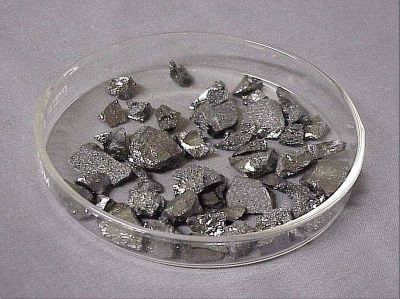
Boron is also mined in many regions around the world. This is because it plays such a role as a garden and health supplement, but also because it is used as a key ingredient in many products. For example, it is often used in fiberglass, fire retardants, and even laundry bleach. Mines can be found in the United States, as well as in Turkey, Argentina, China, Peru, and others, but it typically is mined in dry areas.
Boron enters our environment when rocks that contain boron are weathered. It is usually released into seawater in the form of vaporous boric acid produced by geothermal activity, such as steam, volcanic activity, and earthquakes. Sometimes, human activities can also cause boron to be released, particularly through the use of borate fertilizers or chemicals, or through burning wood or oil.
Borates are then absorbed into soil particles. Some soils have higher contents of boron depending on the porosity of their soil particles. Plants then accumulate boron. Without the right amount of boron in the soil, plants may look healthy, but they won’t be able to bear fruits or flowers. A lack of boron highly impacts their ability to reproduce.
A lack of boron can also affect crop quality, and boron has many other important uses and benefits.
Uses and Benefits of Boron
What is perhaps most interesting about boron is that accumulation does not occur significantly as you move up the food chain. While it is helpful for humans to increase their boron intake by consuming boron-rich plants, levels do not accumulate significantly, so it can be difficult to reach adequate boron levels.
That being said, boron plays an integral role in dozens of farming and health applications. We’re naturally exposed to boron in our diets, water, and consumer products, as well as through the air we breathe and absorbing some of it through the soil. Most of our boron intake, however, comes directly from the foods we eat.
Helps in Plant Development
Boron, usually naturally found in soil, helps plants grow properly. Without adequate levels of boron, your plants may appear healthy, but fail to produce fruit or flowers. Different amounts of boron are required for different plants, however, it should be kept in mind that it isn’t effortlessly transported to the plants.
Boron can be affected by water, as it is utilized by the roots of a plant. The amount of boron in most soils is minute, but every last bit of it is impactful. Too much or too little boron is a delicate balance, as heavy boron quantities in soil can be deadly to plants. Deep watering can leach boron from the soil, while watering too lightly can cause an excess of boron. It’s important to have your soil tested so that you know exactly how much boron exists in the soil’s natural state.
Boron requirements increase when a plant is about to enter the flowering stage (typically regarded as a plant’s reproduction process). In humid areas that receive a great deal of rainfall, particularly those with light-textured or acidic soils, it is possible for rainwater to leach all of the boron out of the soil. This can result in a deficiency, and you might notice that your plants’ flower growth drops off rapidly shortly after a rainfall or right before they are supposed to enter fruit production.
The presence of boron in your garden can help ensure the healthy growth of your plants. It helps to develop cell walls, improve reproductive organs, and to transport food and other nutrients to all parts of the plant – and more.
How can you tell if your plants are deficient in boron? You might notice a stall in growth patterns, or yellowing leaves. The tips of your plants might wither and die, and any fruit that the plant is able to produce will be lumpy and misshapen. Your overall yield will drop dramatically. Boron deficiency is usually pronounced among all plants, but is most easily noticed among apples, pears, grapes, Brussels sprouts, broccoli, cauliflower, cabbage, and turnips. These plants are all heavy boron feeders and often need to be fed a supplement in order to thrive.
If your plants seem to be lacking, you can add boron by mixing a small amount of boric acid (less than a teaspoon per gallon of water) and lightly spraying your plants’ foliage. Plants naturally contain boron in both water- soluble and insoluble forms, with the amount of water-soluble boron changing as the amount of boron supplied (insoluble does not change).
Make sure your plants are actually deficient, as the line between deficiency and excess is fine for any plants. Generally, an excessive amount of boron occurs in soil solution, when the soil is naturally derived from geologically young deposits (like volcanic rock) or from arid soils or those derived from marine sediment. Soil that has been disturbed by human activities, such as that released from coal-fired power plants or mining operations, also can lead to too much boron in the soil.
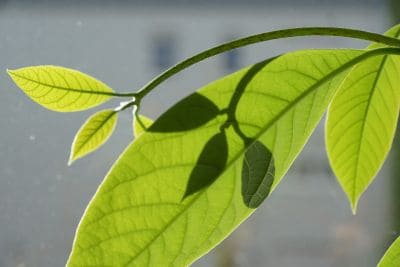
Strengthens Cell Wall
Cell walls of plants and trees help to carry out a multitude of functions. These walls fight diseases and protect the plant from catching infections. Apart from that, the structure of the entire plant relies on the strength of the plant’s cell walls.
Boron plays an important role when it comes to strengthening the cell wall of a plant. Again, the exact concentration needed varies from plant to plant depending on whether the plant is nut or seed bearing. The manner in which a plant uptakes nutrients and water, as well as how it synthesizes those nutrients and water, can also play a role.
Gardens that are low in organic matter may be more likely to have boron deficiency. For example, if you have sandy soil that leaches frequently, it will be difficult for boron to remain in the soil. However, because boron can become toxic once levels have increased so that it is no longer being absorbed into the soil, it is very easy to overdo it on boron, too.
To understand how plants differ in their boron requirements, it is important to understand the difference between dicot and monocot plants. These two categories of plants differ in how their cells uptake nutrients, largely because their cells are designed in different ways. For example dicot plants have stems and vascular systems that consist of bundles of tissue arranged in a ring. Monocots are those that have no particular arrangement.
Dicot plants tend to be both herbaceous and woody, while monocots are herbaceous. Examples of dicots include legumes (like peas and beans), mint, lettuce, tomato, and oak. Monocots include grains (like wheat and corn), as well as bananas, bamboo, sugar, and cone-bearing plants.
As a rule of thumb, dicot plants require more boron than monocot plants, therefore, you need to have more boron in the soil if you are growing a dicot plant in your garden.
On the other hand, if boron is in short supply in the soil, then it makes the cell wall weaker and shorter. Moreover, the roots and pollen tube are also affected. A weaker cell wall will restrict the plant from bearing fruits and can also make it difficult for the plant to set seeds.
The presence of boron is vital for both cell wall and reproductive organs because without it, plants may experience stunted growth and the growth tissues may die as well. Also, in some cases, plants may begin to lose their green color, implying leaf death if boron is lacking.
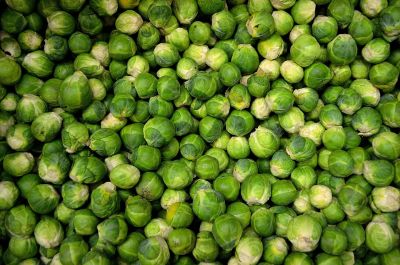
Enhances Fruit And Seed Development
Boron is also known to aid in fruit and pollen germination. It also helps in the nut and seed development. It is a necessary mineral for plants that produce nuts, seeds, and fruit, as it is required by cell walls.
When it comes to flowering and seed setting plants, their requirement for boron is much higher than other plants. Since boron is found under the soil, a heavy rain may leach away the boron found in the soil, and leave plants with a very small quantity of boron. This can affect an entire plant drastically, especially the growing regions of a plant such as roots, leaves etc.
Boron plays a large role in pollen germination and pollen tube development as well. If your garden’s soil lacks boron, then pollen grains will also be affected.
That’s not all – fruit production, seed and nut crops are also affected if there is low amount of boron in the soil.
A deficiency in boron will damage flowers and buds and force them to drop. As a result, the plant will bear fewer of seeds and fruits than it should have if it were to have healthy levels of boron.
Facilitates Sugar Transport In Plants
Photosynthesis is an essential process as it helps plants make food. However, just the process of producing food is not enough, as it must be transported to all parts of the plant. This is where born comes into play.
Boron enhances the transportation of sugar and allow the plant to develop properly. Boron also helps to produce sugar by aiding in photosynthesis. Receiving adequate amount of sugar in plants promotes root growth, too, and as a result the plant is strengthened and provides better yield.
Cell Division (Creating New Plant Cells)
Boron is needed for healthy and continuous growth of certain parts of plants such as root tips, new leaves and buds.
This process is triggered when there is an adequate amount of boron in the soil as it promotes the growth of meristematic tissues (more colloquially known as growing tissues) in plant cells.
In short, cell division involves rapidly multiplying these growing tissues and ensuring proper and continuous growth of plants by creating new plant cells.
When a plant is able to successfully create new plant cells, it makes it easier for the plant to transport water, food and nutrients. The conductive tissues and storage tissues remain healthy at all times when boron is present in the required amount.
Deficiency of boron can lead to issues related to cell division. This is where rosetting may occur.
Rosetting is referred to the stunting of plants and trees because the cell number rapidly decreases in a plant. Hence, make sure that your soil is not deficient in boron.
Keeps The Plants Safe From Insects And Pesticide
Boron also helps to keep pests and insects at bay. However, this doesn’t mean that you should use boron directly in your garden. Here’s where borax comes into play. Borax is used in vegetable gardening to control pests and insects.
Borax is made from boron and comes in a white powdery form. It has acidic properties which is why insects and pests hate it.
While borax is mainly used as a disinfectant and cleaner, small doses of borax can be used to protect your garden as well. In fact, many gardeners use it since it is very affordable and can be bought without any trouble at any local lawn and garden store
The reason borax formed from boron is so essential for gardens is because it has the tendency to kill weeds, bugs, fungus and other elements that can destroy a plant. However, it does not harm the plant when it is applied, even when added directly to the plant’s leaves or stems.
Let’s now see what borax can do…
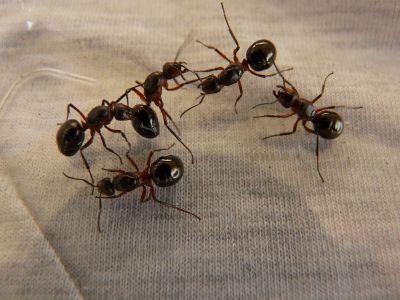
Kills Ants
Ants can damage your plants to a great extent if they find traces of food in your garden. You can use borax traps to trap and kill these ants that are destroying your crop.
Here’s how to make the trap:
- Take a little amount of sugar and mix it with water.
- Add borax to make a paste.
- Now, pour this paste on things like lids, plates etc., and keep them in your garden.
- The ants will be attracted to the sweet-smelling sugar in the mixture and will die almost immediately, as borax is poisonous.
- This is how you can push away the ants from your garden and save your trees and crops from them.
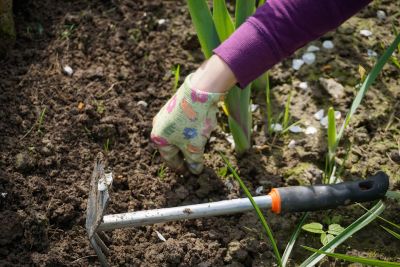
Kills Weeds
It should be kept in mind that borax in large quantities can be harmful for your plants. However, using it in smaller quantities is considered safe.
Here’s how to kill the weeds in your garden:
- Add ½ tbsp. of borax to a gallon of water.
- Next, use the borax water solution in places where you see weeds.
- You need to be extra careful while doing this because if you accidentally sprinkle too much borax on a vegetable plant, it might kill the plant.
- Another important point to keep in mind is to never use borax when the weather looks rainy. Rain and wind can cause borax to spread in the garden and cause plants to die where you might not have wanted them to.
Fertilizer
It’s true that, on one hand, borax can kill plants, but it is also true that adding some amount of borax in water and then passing it into the soil can boost production. It can also work to remedy nutrient deficiency, especially in the case of sandy soil.
If your garden is somewhere around 1000 sq. feet, then mixing 7-8 tbsp. of borax in water should do the trick. Remember to be careful about the amount of borax used, as going above the suggested limit can cause serious issues.
There are many fruit trees that benefit from adding borax such as apple trees. It does not only improve the quality of soil but can also prevent your plants from getting rotted.

Pollination
Pollination aids in increasing the overall yield of your garden, and as a result should be paid close attention to. You can improve the rate of pollination with help from boron.
There are several factors that affect the yield of a plant. These include water systems, weed/pest/insect control, available nutrients to the plant, and more. All these things have to be taken care of if you want your plants to provide you with a good yield.
But, how does boron impact pollination and yield? It acts as a catalyst and improves flowering time. As a result, you will have a more timely yield and your plants will produce flowers more easily.
Boron is a fundamental supplement that plays an important part in guaranteeing that pollination converts into effective fertilization. Pollination results in fertilization, which is naturally aided by boron. It makes sure that fertilization takes place. Pollens do not always reach the ovary; at times they are lost or stuck and hence no fertilization takes place. But, this problem can be solved with help from boron, as it improves the performance of a pollen tube and impacts the yield in a positive way.
The solution to the problem lies in foliar spraying of boron. Spraying boron can help move the pollen. Mobility of pollen is the most important thing when you want your plants and trees to bear seeds and fruits and boron can help you achieve that.
Enhances Carbohydrate Production
While boron is responsible for producing and translocating sugars, it also helps form carbohydrates. Boron helps form complex sugar molecules along with carbohydrates that help a plant grow better.
When boron is not present in the soil, these simple sugars won’t form carbohydrates but will form phenols, which will invite insects and may even cause a plant to fall sick.
A lack of boron can make your plants vulnerable to pests and disease. In short, presence of carbohydrates can help plants shove off various insects and the diseases they bring along by strengthening the plant and also acting as a repellent.
The colonization of mycorrhiza is also affected by boron at the root surface, as it increases carbohydrates in the roots. Boron also aids in forming abscission layers (similar in appearance and function to scar tissue) and prevents certain bacteria from entering the tube storage in plants.
In addition, boron protects plants against severe weather conditions. It keeps the leaves intact by maintaining a strong abscission layer, preventing leaves from falling off.
Signs of Boron Deficiency in Plants
While symptoms of boron deficiency will vary depending on the type of plant, most plants exhibit telltale signs. In particular, the following symptoms can be found in these plants:
Apples – Plants will have trouble processing calcium, and will have internal areas that appear frozen.
Cabbage – Plants will have misshapen leaves and hollow pieces within their stems.
Celery – The stalks of this plant’s leaves will develop thick cracks and ridges and may have reddish brown tissue.
Pears – All new shoots will begin to die back early, in the spring, and fruits will form brown discoloration.
Strawberries – Plants will be stunted in growth with small foliage that produces puckered yellow tips.
Beets – The roots of the beets will be rough and diseased, and also more susceptible to rot.
Cauliflower and Broccoli – Brown patches will develop and stems will become rough.
In addition, all plants (as well as those not listed here) can be susceptible to boron deficiency, and will exhibit generalized problems like dying rowing tips and stunted growth. Most plants will have trouble setting fruit.
Health Benefits Of Boron
Above were all the benefits boron has to offer to gardeners. However, boron is not helpful only for plants or for people with green thumbs – it can help people solve other issues as well. Many health conditions, some of them dangerous, can be easily treated with the use of boron, allowing you to carry on with your daily life without having to turn to harmful prescription or over-the-counter synthetic medications.
Boron is said to enhance the functionality of several organs, such as the eyes and the brain. Moreover, it also makes our digestive system stronger and is being used actively in several aspects of modern medicine. It is also being used in the treatment of several diseases, as it can help improve the natural ability of the body to absorb and synthesize vital nutrients like magnesium and calcium.
Boron works the same way in humans as it does in other mammals. Therefore, while it can be challenging for scientists to monitor the effects of boron in humans, they can easily reproduce its effects on lab animals. When boron is inhaled, it is widely distributed around the body, with some being directly absorbed by the bones. It is excreted quickly, which is part of the reason why it can be so hard to maintain adequate levels of boron.
If you are deficient in boron, it is likely that you are already well aware of this. Boron deficiency can cause serious problems, like osteoporosis, neural malfunction, and hyperthyroidism. If you notice any of these diseases, or symptoms related to these diseases, you should consider having yourself tested for boron deficiency.
It can be dangerous to consume too much boron, and inhaled boron has also proven to have dangerous side effects. It can irritate the eye, respiratory tract, and nasopharynx, and some groups of people might be more sensitive.
Anti-Inflammatory Properties
Since 1970s, boron has been used to help patients suffering from osteoarthritis, also called joint disease. This is a condition in which a person’s cartilage between the joints becomes damaged. This condition is very painful and can restrict a person from engaging in physical activity even so mild as going for a walk. Moreover, it also causes the joints to swell, which can be excruciating and debilitating.
This condition is common among people who are boron deficient. This is because boron has been linked to improving the levels of calcium in the body. As a result, deficiency of boron results in a deficiency of calcium.
Quite surprisingly, increasing the consumption of boron via boron supplements can enhance calcium level in the body and improve bone and muscle strength. In short, a boron supplement can help reduce or eliminate the symptoms of arthritis. It helps to speed up the recovery process for both the bone and the cartilage.
Due to these benefits, boron is found in many supplements. It helps treat inflammation in the body due to wear and tear, bone breakage, or muscle tears.
As if that wasn’t enough reason to consider a boron supplement, take a look at this. Athletes have been reported to consume boron to prevent arthritis while they are training or putting a lot of pressure on their bodies. According to an epidemiological study, people who consume little boron per day (1 mg or less) have higher chances of getting arthritis compared to people who take higher levels of boron per day (3 to 10 mg).
In over 95% of cases, boron is a successful treatment for arthritis. Because it improves your bones’ ability to integrate calcium in the cartilage, it is a great option for aging individuals seeking a more natural treatment for their arthritis woes.
Check out this video on how boron improves bone health:
Improves Brain Functionality
Boron deficiency is also linked to poor brain performance and a poor memory because lack of boron makes a person energy deprived and tired, thus indicating poor brain functionality.
This is common among older people because their boron intake is lower compared to that of younger people. The deficiency of boron among kids is also concerning because it weakens their brain power and can lead to cognitive and developmental problems in the future.
Many brain experts consider boron to be a “brain nutrient” because it is said to enhance a number of activities in the brain.
First, it enhances the performance level of a person by offering better motor control. It makes you more attentive and as a result you are in better control of things. Moreover, baron improves your reaction time and makes you better at interacting with others, mainly with machines.
Poor brain power can also lead to a poor memory and even to a short term memory loss. To avoid this from happening, boron enriched vegetables such as kale and spinach should be eaten.
Healthy Hormone Functionality And Increases Fertility
Hormones, testosterone and estrogen, are important when it comes to being fertile and being able to bear children. However, a lack of boron can disrupt the amount of these hormones and raise fertility issues in women as well as men.
In such a situation, increasing boron intake can help balance the levels of hormones and improve fertility. Adequate amounts of boron (3mg to 10 mg) are also linked to an improvement in problems such as PMS and related symptoms.
Testosterone is an important hormone. This hormone can be reduced if the boron concentration in a person is lower than required. Lower levels of testosterone can lead to several problems such as fragile bones, tiredness, swelling, body fat, reduced strength etc. Many men, in particular weightlifters, like to increase their testosterone levels to enhance their athletic performance and libido. Taking boron can help increase testosterone levels or alter a deficiency.
Experts recommend to consume 300 to 1050 ng/dL of boron everyday to correct this deficiency.
In developing babies, boron may also be effective. It seems to be essential for reproduction and fetal growth, and while it’s unclear why exactly this might be, it’s a good idea to chat with your doctor if you are expecting.
Makes Bones Stronger
Our bones are the foundation of our body which is why they need to be strong. However, a lack of boron in the body can lead to fragile bones.
The reason for this is quite simple. Boron deficiency promotes calcium loss (bone loss) as boron helps the body make use of calcium. When there is no or little boron in the body, the body fails to make good use of calcium, and as a result bones begin to get weaker. The two work in unison, and help each metabolize key nutrients more effectively.
Other than calcium, vitamin D is another important nutrient which is required by the body to help make the bones stronger.
Lack of boron can also lead to lower levels of vitamin D and vitamin D deficiency can cause many health problems such as loss of bone density, high blood pressure and diabetes.
The solution to the problem lies in consuming a good amount of boron per day via foods or supplements. A study says that, by consuming 6 mg of boron daily, a person can increase vitamin D levels by up to 24%.
Calcium and vitamin D both are important ingredients that you need to feed to your bodies for good bone strength. If you do not consume a diet that is rich in calcium, then you may face many bone diseases because when the body doesn’t get enough calcium from the foods you eat, it looks elsewhere – that is, your bones – to get the calcium. Hence, bone loss is a possibility due to calcium loss as a result of boron deficiency.
Prevents Blood Clots and Lowers Plasma Lipid Levels
If cardiovascular issues are your concern, boron can help you, too. Boron is a huge component in the fight against heart disease, as there is evidence to suggest it might be able to influence some of your body’s blood clotting abilities. It can also lower lipid levels, enabling the removal of cholesterol via natural means instead of through medication alone.
Treats Cancer
There is emerging evidence that boron may be useful in the fight against cancer. Boron neutron capture agents are frequently used to develop strong enzyme inhibitors, as well as to treat existing cases of cancer. This is because boron contains powerful compounds that mimic common antibodies.
Works On Yeast Infections
Women are prone to yeast infections which can be very painful and embarrassing. There are many over the counter medications that can be used to treat the infection since almost all of them contain some amount of boron. Boron is said to be an effective and a quick healer when it comes to yeast infections.
In case of a severe infection that is spreading rapidly and the pain becomes difficult to bear, many women turn to medication containing boric acid. This common form of boron can be used intravaginally to treat the infection quickly.
This method is safe, however experts recommend not to try it if you are expecting to have a baby. Studies have shown the possibility of birth defects in newborns if the mother uses boric acid.
A major reason why so many people use boric acid to treat yeast infections is the fact that boric acid is readily available and is much more affordable than creams and other treatment options.
Boron is also effective against other fungal and parasitic infections.
Improves Skin Problems
People having skin problems such as redness, itchiness, irritation and even wounds can treat them by using boron. Boron is said to kill bacteria that reside on the skin and are the reason to cause skin infections and redness.
Boron can also be used as a natural eye wash to eliminate the bacteria that can cause infection and sties in people. It is also linked to improving the overall quality of skin since it serves as a form of topical nourishment. People who consume boron in the required amount have fresh, natural and glowing skin.
Treats Kidney Stones
Kidney stones are extremely painful and need to be removed quickly. While it is now easy to remove them via lasers, many people still prefer to use boron since it involves no pain and the results are also quite impressive.
The most common reason for the development of a kidney stone in a person is urinary calcium excretion. In this condition, the calcium from the body is excreted from the urine and the result is kidney stone development.
Now, the most common way of kidney stone removal is by letting it pass from the urine. However, lack of calcium can cause the kidney stone to grow in size, making it very painful to pass it via urine. Taking at least 3 mg of boron through diet or supplements here can reduce the size of the stone and make it easier for the stone to pass in urine.
Fights Diabetes
Higher levels of glucose can lead to diabetes. Boron deficiency can lower glucose levels (blood sugar level and triglyceride concentration). This helps a great deal if you are diabetic.
People who consume the required amount of boron in a day can easily metabolize carbohydrates and produce insulin to control diabetes. While this is not a cure, boron can definitely help the cause.
Improves Muscle Mass
Our body needs to utilize certain nutrients to create muscle mass. Boron can help in this regard by promoting the utilization of magnesium, phosphorus and calcium in the body so as to improve muscle mass. This is because boron is said to boost testosterone levels in the body, leading to more energy and muscle strength in a person.
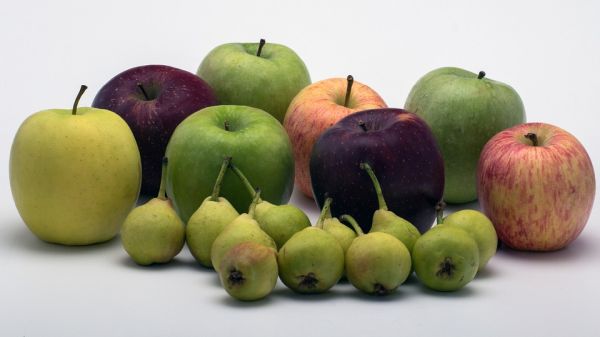
Boron Sources
While there are many supplements that can provide boron to the body, the best way is to consume it naturally via diet.
Your diet should include foods that are rich in boron. However, make sure to consume the right amount of boron. While the suggested amount is 3 mg to 10mg per day, your body’s needs depends on several factors including your gender, age etc., so make sure to speak to a specialist about how much boron you should consume as an overdose may cause serious issues.
Some foods that contain boron:
- Beans
- Sweet potatoes
- Raw Milk (organic, unpasteurized)
- Pecans
- Walnuts
- Artichokes
- Berries
- Apricots
- Cherries
- Coffee
- Red wine
- Pears
- Avocado
- Figs
- Prunes/plums
- Peaches
- Grapes (and pure grape juice)
- Oranges
- Onions
- Cocoa
- Apples
Symptoms of Boron Overdose
With all this talk about the amazing health and horticultural benefits of boron, you may be wondering why you would ever not increase your boron intake. However, it is important to note that boron comes with some seriously unpleasant side effects if you decide to consume to much.
If you over indulge in this miraculous nutrient, you might develop symptoms such as dermatitis, nausea, vomiting, and fatigue. You may develop some skeletal abnormalities, or even notice the accumulation of problems in areas like your brain or kidneys. Be careful how much you take, and always consult with your doctor before beginning a new supplement regimen.
Conclusion
Boron is a natural nutrient that is not only required by plants and animals but by humans, too.
Plants drastically depends on the presence of boron in the soil because of the many benefits it provides. It helps them grow at a good rate and in a healthy manner. Moreover, it also helps to keep pests and insecticides at bay while increasing the overall yield of your crops.
In addition, boron helps transport food to all the parts of the plant and protects them against several diseases. It can help with the pollination process as well.
However, boron is not only beneficial for plants but for humans as well. It can help control several health issues and is even used in different modern medicines. Make sure to include boron as a part of your diet and to provide your plants with the required amount as well.
Note: Be sure to speak to your doctor about how much boron you or your plants should consume as an overdose may cause serious issues.
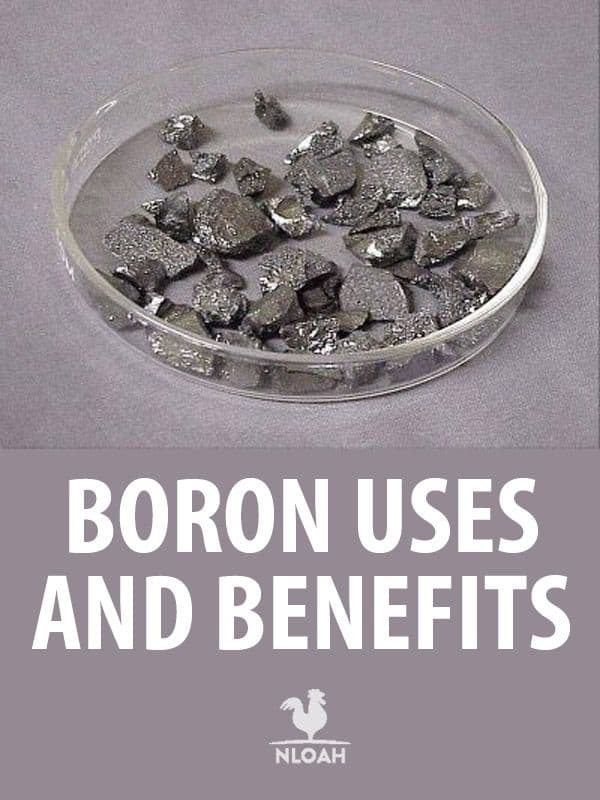
Michael is in love with nature and loves to spend his weekends with his pet dog at his farm where he grows organic fruits and vegetables. He’s a single parent who loves the idea of simple living.
